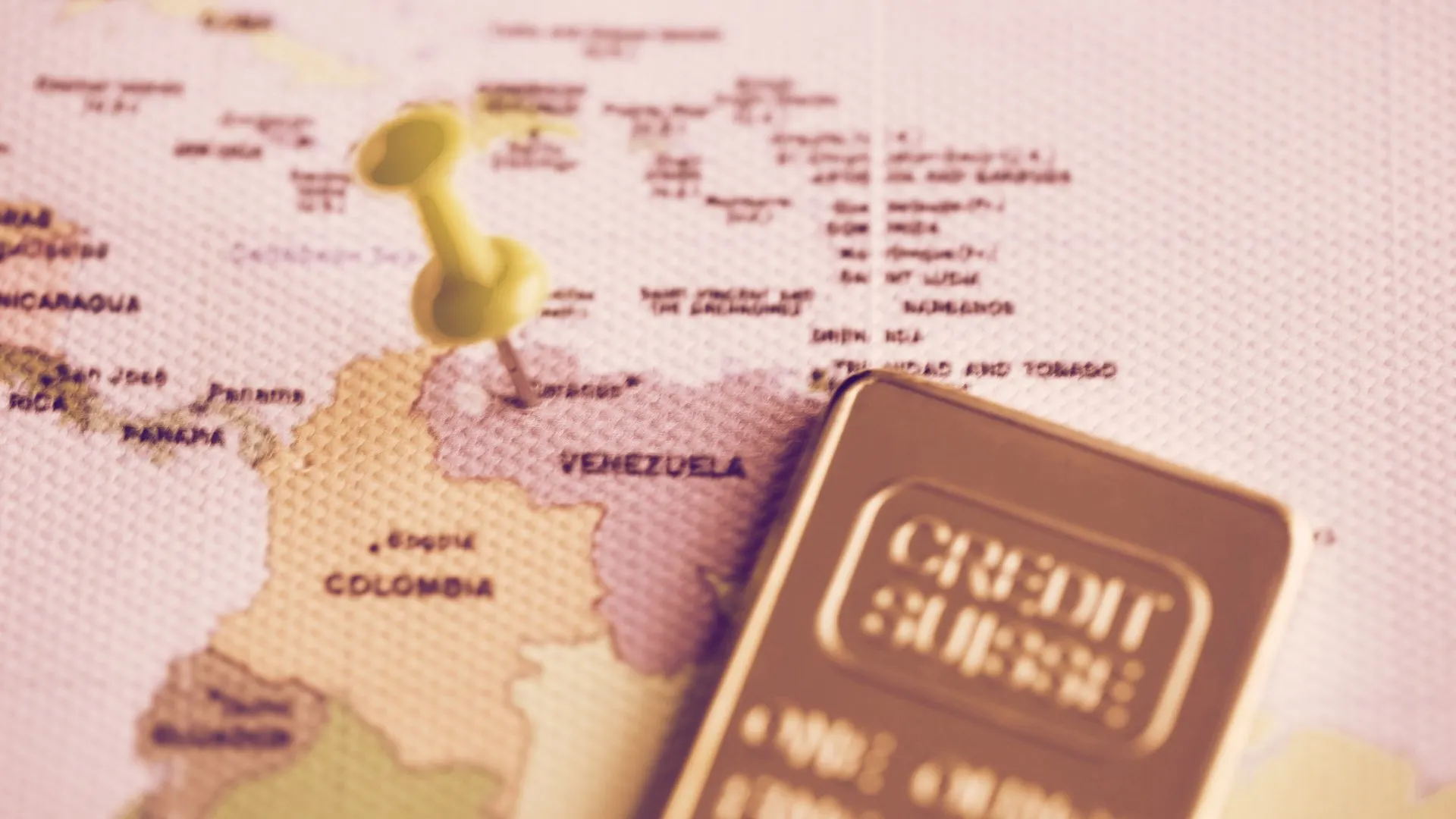In brief
- The UK’s High Court has denied Nicolás Maduro’s legal claim to Venezuelan gold held in the Bank of England.
- The court ruled against Maduro’s claim to the presidency, stating that it officially recognizes his political rival instead.
- Venezuela is one of a number of regimes that's turned to cryptocurrency in a bid to bypass sanctions.
We do the research, you get the alpha!
Venezuela's de facto leader Nicolás Maduro has been denied his request for over $1 billion in Venezuelan gold stored at the Bank of England (BoE).
Much to the likely chagrin of Maduro, the UK High Court "unequivocally recognized opposition leader Juan Guaidó as president," according to the BBC—throwing Maduro’s legal action out of court as a consequence.
The gold in question had been held back by the BoE following US and UK sanctions on Maduro's controversial administration.
Why is Maduro trying to claim the gold?
In May, Maduro initiated legal proceedings to lay claim to the gold, insisting it would be spent on the country’s battle against coronavirus. However, Maduro's plans were hindered by his political rival and leader of the opposition, Juan Guaidó, who proclaimed himself acting president of Venezuela last year.
Pleading with the UK government to rescind Maduro's request, Guaidó claimed that the gold would be used for corrupt ends.
Turning to the High Court, the BoE asked for an official ruling on which "leader" the UK recognizes as the official Venezuelan president. In the end, the courts sided with Guaidó. Nevertheless, Maduro's lawyers plan to appeal the decision.
Venezuela's leadership struggle began in 2018 when Maduro was elected for a second term despite opposition parties boycotting the event. Applying the county's constitution, Guaidó stepped up, declaring himself interim president. To date, 50 countries, now including the UK, have recognized Guaidó's leadership—with the notable exception of Russia and China.
From gold to Bitcoin?
Many regimes have resorted to Bitcoin and other cryptocurrencies as a means of avoiding sanctions. North Korea is known to mine both Bitcoin and the privacy coin Monero, while the Iranian government reportedly dabbles in crypto for international trade. Citizens of countries facing sanctions have also turned to Bitcoin, with businesses in Iran and Cuba embracing the cryptocurrency.
Venezuela itself is no stranger to cryptocurrency, with the country’s central bank reportedly holding Bitcoin and Ethereum, and the country briefly allowing citizens to pay for passports in Bitcoin. In response to US sanctions, the crypto exchange Paxful has barred the Bank of Venezuela from accessing its services. For his part, Guaidó was scathing, describing the regime’s use of cryptocurrency as “subterfuge” that “emphasizes the economic crisis the regime is going through.”





